A Guide to Simple Living | Homesteading New England
For the would-be do-it-yourselfer, our guide to homesteading, from cheesemaking to raising chickens to building your own (tiny) house in New England. Here in the land of Yankee ingenuity, the desire to be more self-sufficient is something like a birthright. Conspicuous consumption may be our economy’s primary driver, but the Puritan ethic still holds some […]
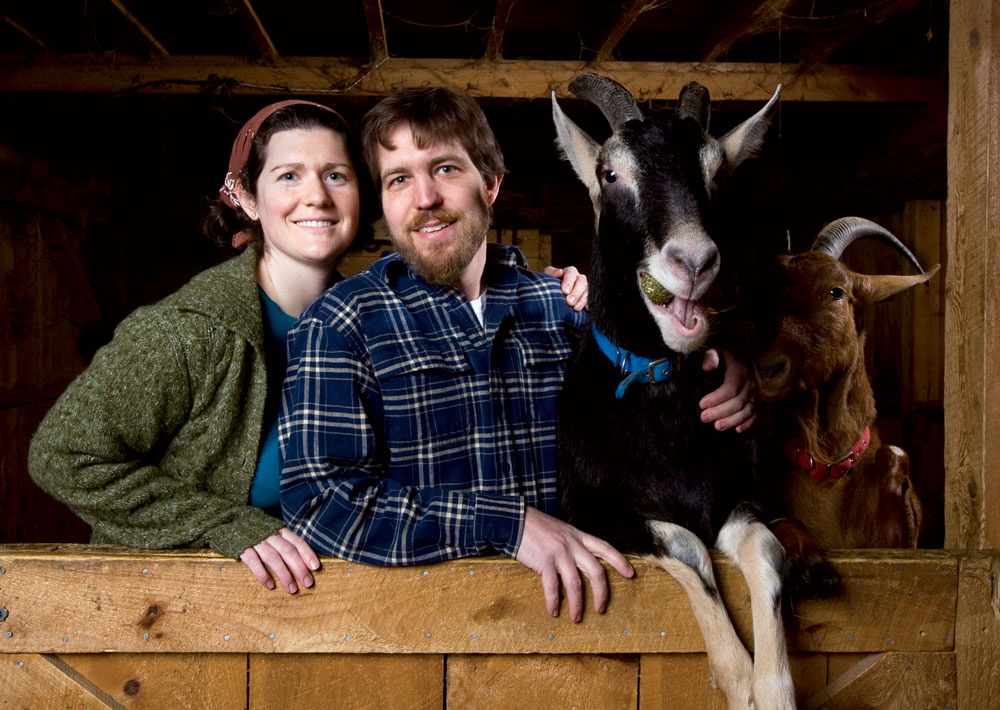
Margaret Hathaway and Karl Schatz of Ten Apple Farm in Gray, Maine, with their goats Joshua Lawrence Chamberlain and Chansonetta, who happily lead visitors on Sunday hikes into the woods.
Photo Credit : Jose AzelFor the would-be do-it-yourselfer, our guide to homesteading, from cheesemaking to raising chickens to building your own (tiny) house in New England.
Here in the land of Yankee ingenuity, the desire to be more self-sufficient is something like a birthright. Conspicuous consumption may be our economy’s primary driver, but the Puritan ethic still holds some sway. And in these times of uncertainty—environmental, financial, political—many of us are shifting toward simplicity, greener living, and self-reliance. It might be as simple as growing and canning tomatoes or learning to knit or dye wool, or it might even mean going off the grid. The collective do-it-yourself ethos is on the rise.
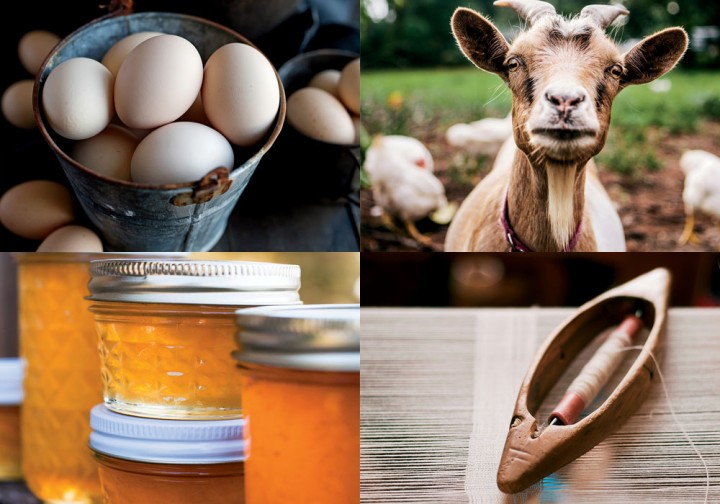
A Guide to Simple Living in New England
We may not all want to be homesteaders living off the land, but nearly everyone can still find ways to embrace a more handmade life. Yankee presents our guide to the simple life in New England—from cheesemaking and weaving schools to beekeeping and chicken farming workshops—plus essential reads and festivals where you can’t help but pick up tips and meet people who are learning by trial-and-error what works. No matter your interest level, there’s a book or a school or a craftmaking vacation that will inspire you to learn something new.
Upinngil Farm | Gill, Massachusetts
“These are small and intimate classes, and I really make you feel what you’re doing,” says owner Cliff Hatch. Cheese-making classes are offered in spring and fall. Students with access to milk from their own animals are encouraged to bring it along to Upinngil’s daylong workshops, or Hatch will supply milk from his herd of grass-fed Ayrshire cows. Beginning classes focus on simpler, softer cheeses such as cream cheese, Camembert, Brie, and blue; there’s also an advanced hard-cheese course (cheddar or Monterey Jack). Participants learn about milk quality and which type of bacteria to use as a starter for each kind of cheese.upinngil.com
Sterling College’s Artisan Cheese Program | Craftsbury, Vermont
Nestled in the beautiful Northeast Kingdom, Sterling College offers a popular and intensive cheesemaking course in partnership with the experts at Jasper Hill Farm. This hands-on, two-week course covers the fundamentals of artisanal cheesemaking, exploring various styles of cheese as well as the science behind the craft. sterlingcollege.edu/academics/continuing-education/artisan-cheese-program
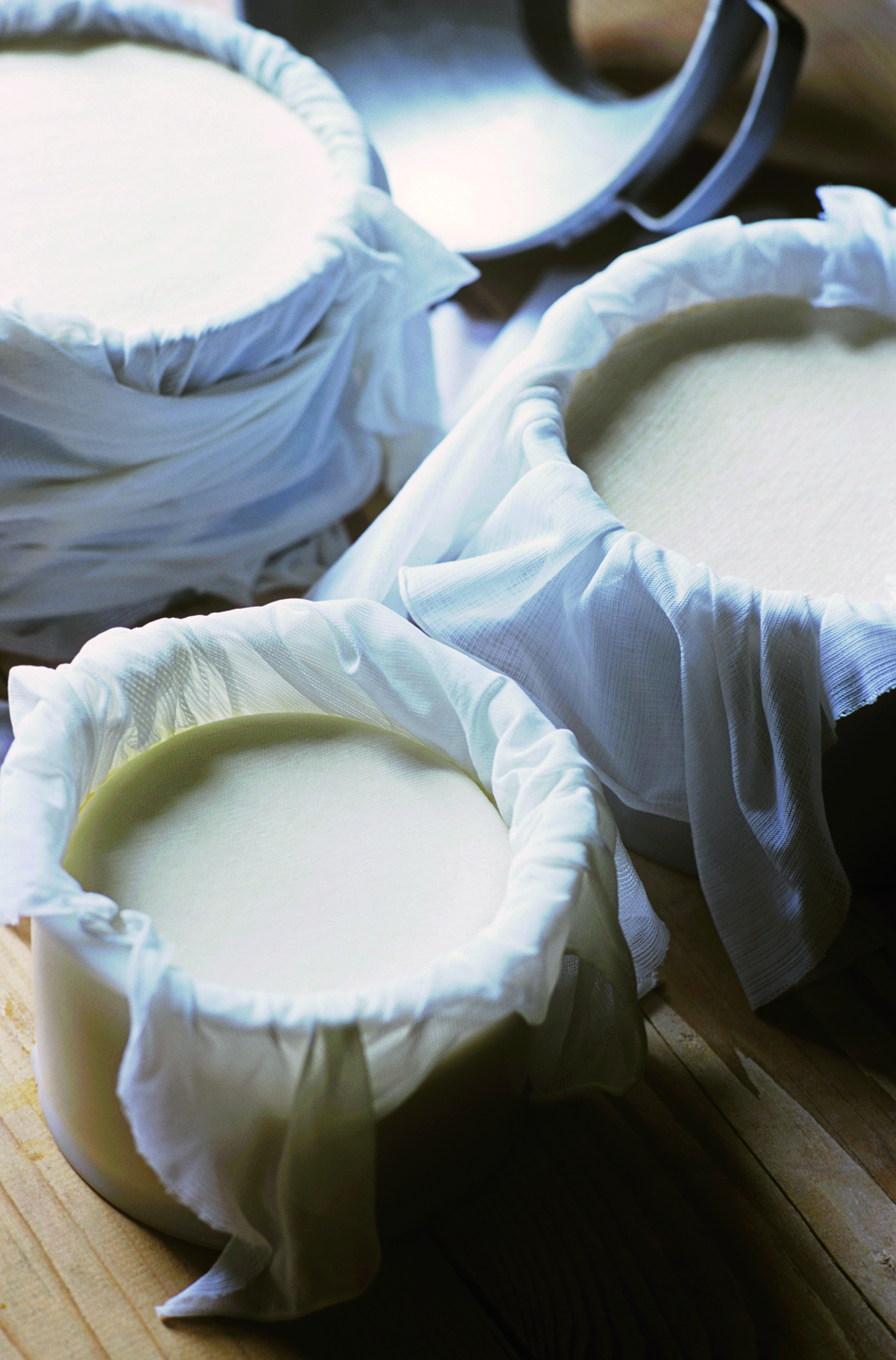
in cheesemaking for home cooks.
Photo Credit : Frederic Vasseur/Stockfood
Three Shepherds Cheese | Warren, Vermont
Linda and Larry Faillace offer one- to three-day courses on their farm in the Green Mountains from May to October, using a variety of milks (cow, sheep, water buffalo, goat) and covering the spectrum of cheese styles, from softer cheeses to more challenging, mold-based types. Students range from dabblers to would-be professionals contemplating a career change. threeshepherdscheese.com
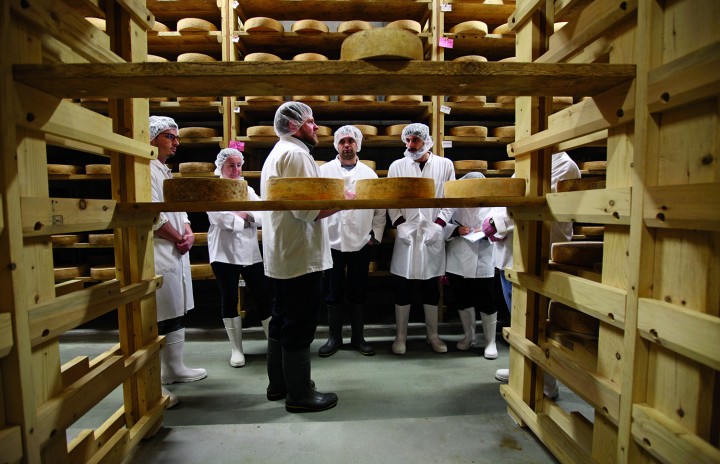
Photo Credit : Beana Bern for Sterling College
New England Cheesemaking Supply Company | South Deerfield, Massachusetts
Launched in 1978, this school is run by Ricki Carroll, the self-described “cheese queen,” whose home cheese-making kits are sold online and in gourmet shops around New England. Carroll teaches a one-day, “101” intro workshop as well as a more-advanced two-day class that will have you pulling mozzarella and turning out your own Camembert-style rounds. cheesemaking.com
Jillyanna’s Woodfired Cooking School | Kennebunkport, Maine
“I knew I wanted to do something surrounded by fire and gardens,” says Jill Strauss, a former schoolteacher and Johnson & Wales culinary-school grad. “It engages all of the senses.” Classes, which tend to run three to four hours, are held May through December in Strauss’s kitchen and in the lush gardens where her wood-fired oven stands. Strauss traveled to Italy to study Neapolitan pizza making, and her classes cover a range of subjects, from pizza to pasta to pie-making. jillyannas.com
Strawbery Banke Museum | Portsmouth, New Hampshire
Small groups allow for plenty of hands-on experience in these open-hearth cooking classes. Offered year-round in the historic Wheelwright House, the museum’s two-hour courses are rooted in traditional New England cooking, such as bean soup, cod cakes, roasted meats, and hearth-baked bread (students leave with a printed cookbook). According to Bekki Coppola, director of education, many students come to learn to use their own traditional hearths, but some are simply hoping to become masters of the campfire. strawberybanke.org
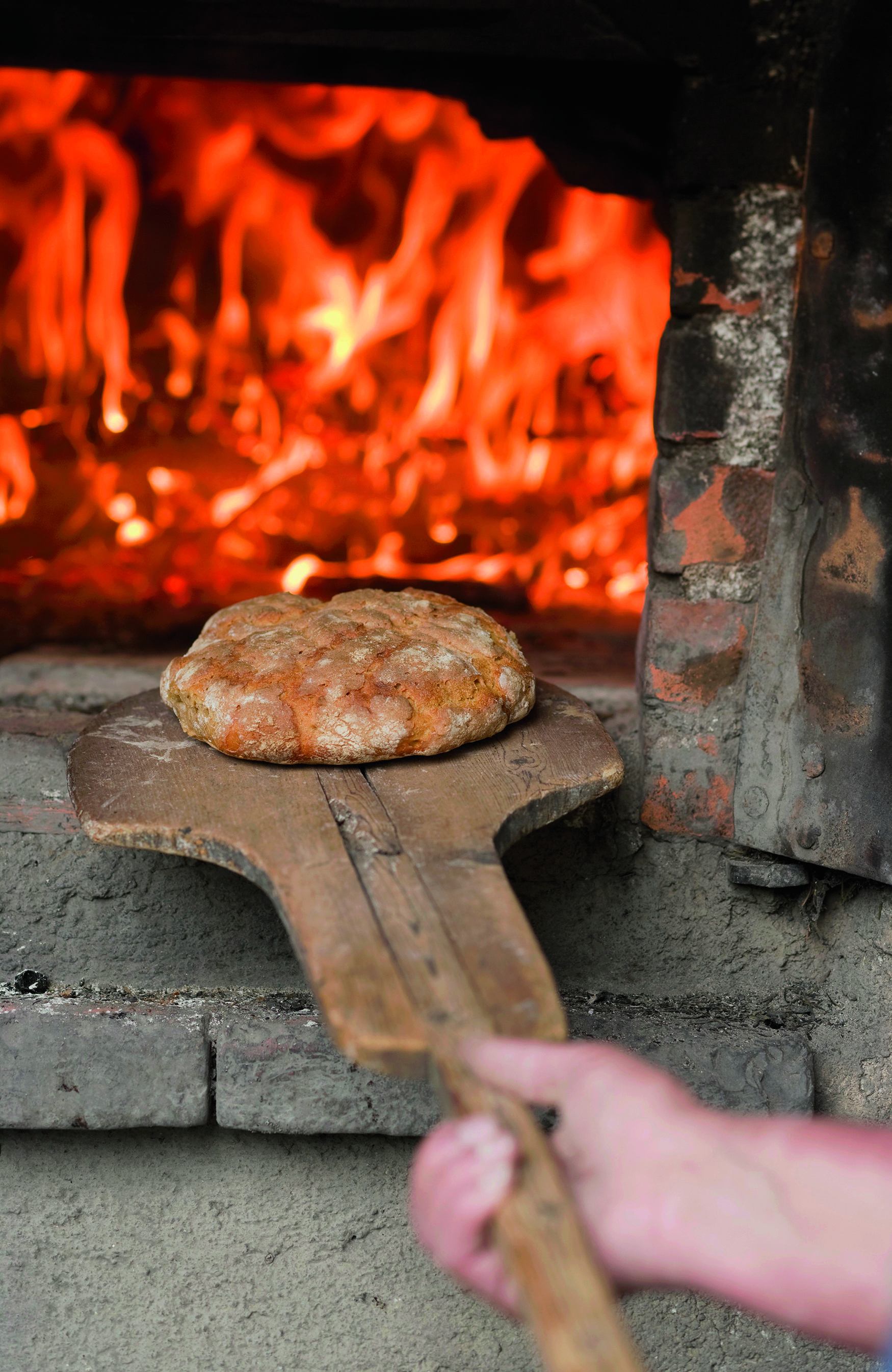
A selection of New England chefs and instructors can show you tried-and-true techniques for hearth cooking.
Photo Credit : Eising Studio-Food Photo & Video/Stockfood
Woody Hill Hearth Cooking | Westerly, Rhode Island
Using her reproduction 1775-type fireplace, Linda Madison teaches small groups how to cook over an open hearth as well as in a beehive oven. Classes run four to six hours and are offered only in the winter months. Here students can expect to cook a complete meal using a few simple fireplace techniques and antique utensils. Madison offers a blend of historic and modern recipes. “The emphasis is not on Colonial recipes,” she says. That said, Madison’s classes always make Martha Washington’s spiced gingerbread and Thomas Jefferson’s bread pudding. woodyhill.com/cooking
Carolyn’s Farm Kitchen | Haverhill, Massachusetts
Carolyn Grieco runs a one-woman operation with classes held at various locations around Massachusetts’ North Shore. “It’s critical to have a hands-on class,” she says, noting that many students are intimidated by canning and worried about safety issues. “If you’ve never done it, it can seem so overwhelming, but it’s so simple.” Grieco’s classes cover pickling, canning, and preserving and use produce from local farms. carolynsfarmkitchen.com
Cedar Circle Farm & Education | East Thetford, Vermont
At this “organic farm with a social mission,” you can not only purchase a CSA subscription but also learn to put up your veggies in classes on preservation and traditional canning. The spring roster includes a session on salt brining (vinegar-free pickling); fall classes include the basics of home fermentation and everyday meal preparation using fermented foods. Free events include Community Cannery Days in July and September, when participants work with kitchen staff to preserve the day’s crop for a share of the goods. The farm’s half-day sessions are small—no more than 15 students each—and are held in an idyllic setting along the Connecticut River about 12 miles north of Hanover, New Hampshire. cedarcirclefarm.org
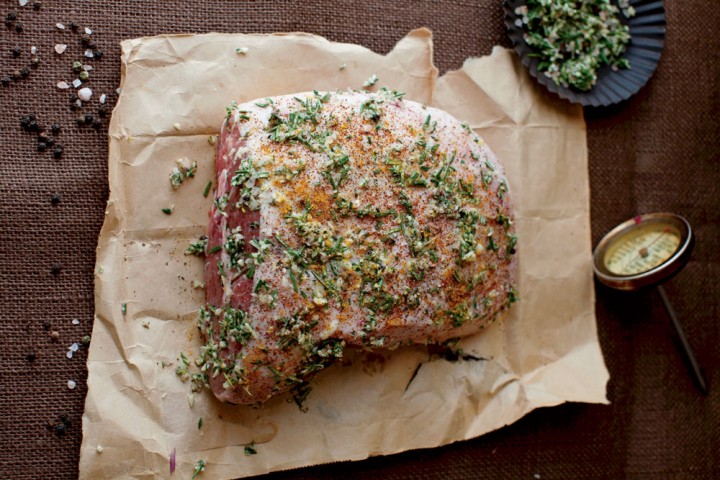
Photo Credit : Yelena Strokin/Stockfood
Fleishers Craft Butchery | Westport, Connecticut
“The people who used to know how to do this aren’t around anymore,” says owner Ryan Fibiger. He offers single-day basic butchery classes as well as weekend-long courses on slaughtering techniques. “It’s a really important part of the process,” he says. Fibiger says his students include those who are simply curious, others who are devoted hunters, and still more who are farmers, seeking to learn more about processing their own animals. fleishers.com
Patricia A. Hannaford Career Center | Middlebury, Vermont
Lynn Coale is nostalgic about a time when people shopped for meat at the local village butcher shop. As director of the Hannaford Career Center, which offers vocational and technical courses to local youth and adult- education programs to the general public, Coale says that most American beef is processed in one of four plants around the country. But interest in the trade is coming back, and artisan meat-cutters are very much in demand. The center offers intensive, multiweek courses in butchering and poultry processing, including instruction in knife skills, anatomy and physiology, food safety and sanitation, and the humane and ethical treatment of animals. hannafordcareercenter.org
Harrisville Designs | Harrisville, New Hampshire
The town of Harrisville in southwestern New Hampshire is a designated National Historic Landmark, the only 19th-century mill town that still survives in its original form. The Colony family ran the woolen mills here from the mid-1800s until 1970, and in 1971, John Colony founded Harrisville Designs to keep the town’s textile heritage alive. The center offers workshops in sweater and Japanese knitting; basic, tapestry, and rug weaving; color design and garment construction; and spinning for all levels. Classes run anywhere from two days to multiple weekends. harrisville.com
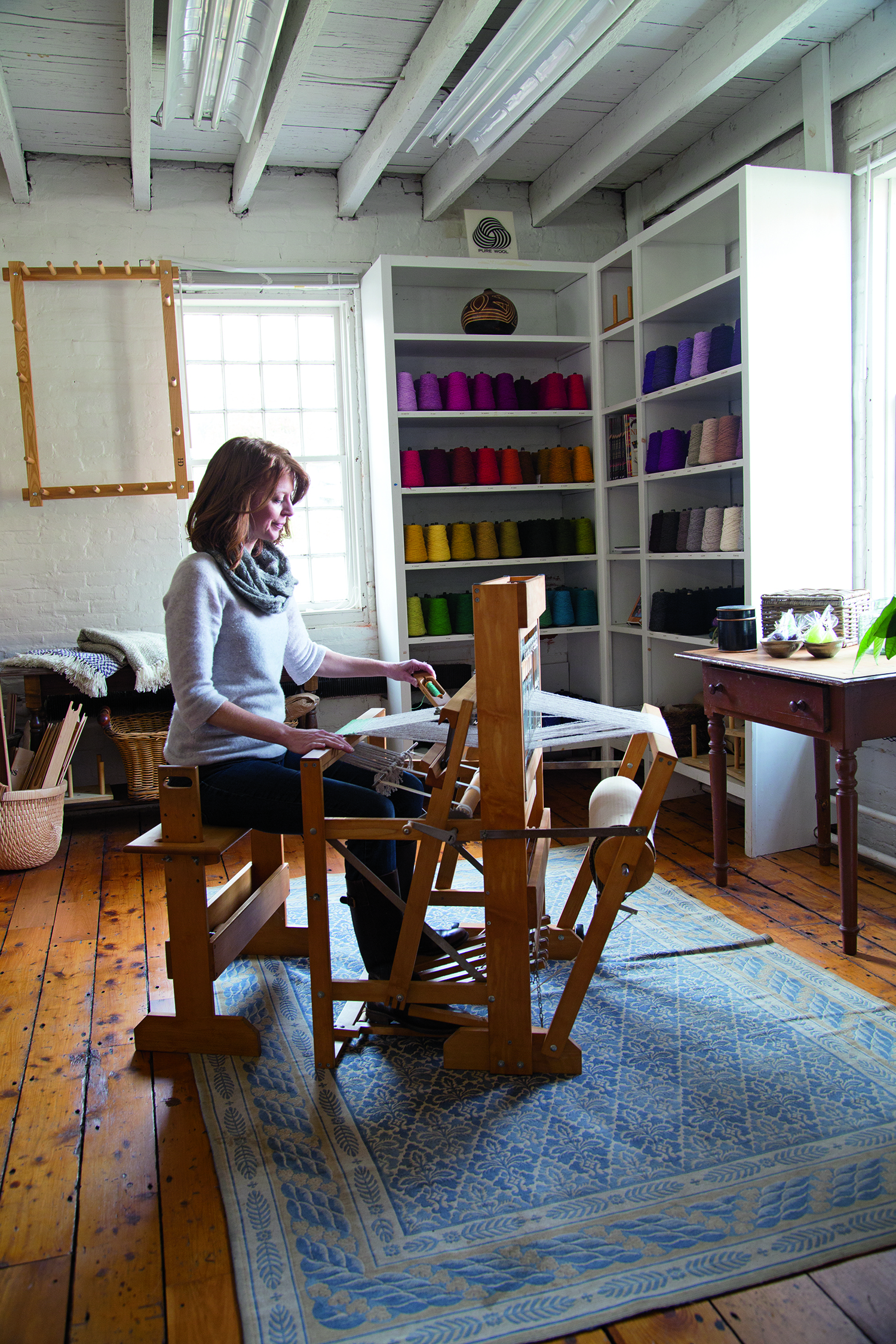
Photo Credit : Lori Pedrick
Saunderstown Weaving School | Saunderstown, Rhode Island
Norma Smayda has been weaving for nearly 50 years and running her school for 40 of those. She offers two- and three-day workshops year-round, as well as intensive 15-week programs with an emphasis on traditional and Scandinavian weaves for table linens, curtains, towels, wall hangings, and more. Students come with mixed abilities, and Smayda adjusts the curriculum to each. saunderstownweavingschool.com
Rhode Island Beekeepers Association | Greenville, Rhode Island
When Ed Lafferty began keeping bees 13 years ago, he was one of 15 people at his first meeting. Now, dozens of people come out to share tips and solve problems. “Interest has skyrocketed,” says Lafferty, who serves as president of the association. He attributes much of the interest to public concern over colony-collapse disorder. The association schedules courses and “Bee School” sessions throughout the year so that newbies can temper their enthusiasm with knowledge. ribeekeeper.org
Imagine That HONEY! | Swanzey, New Hampshire
A beekeeper for 15 years, Jodi Turner knows that it’s impossible to learn everything in one workshop or even over a year. Having a mentor to guide you through various stages and questions is invaluable. “I love to see people learn about nature,” Turner says. “If you’re treating your world right, everything comes together.” Her workshops typically begin in March and classes are three hours long, once a month, for six months. imaginethathoney.com
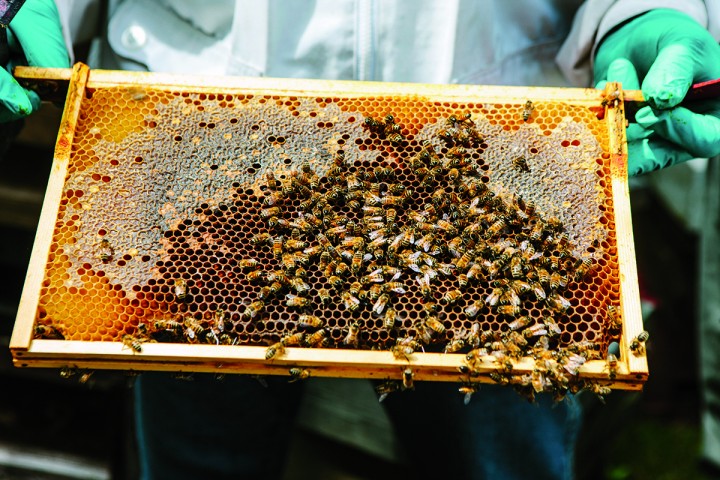
Photo Credit : kkgas/stocksy
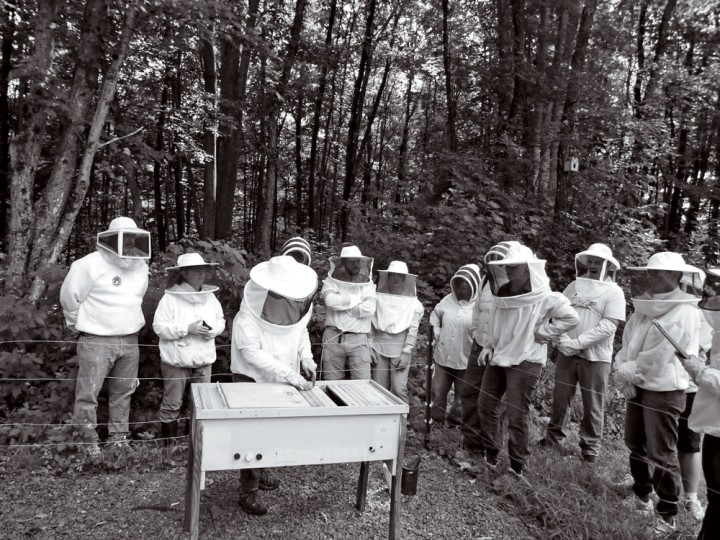
Photo Credit : Jodi Turner
Stonewall Apiary | Hanover, Connecticut
Stuart Woronecki, a professional beekeeper for 12 years, welcomes beginners to learn all the beekeeping basics, from hive maintenance, to equipment, to coping with pests and disease, to honey harvesting and processing.His classes run several times per year at locations in Coventry and Mystic, Connecticut, and after four sessions (two and a half hours each), his students are ready to start off on their own. “It’s challenging to be successful,” he admits. But his classes offer a comprehensive foundation and a community of fellow learners. ct-honey.com
Stone Soup Institute | Harpswell, Maine
Farming, logging with draft horses, gardening, animal husbandry, soap making, raising chickens, fiber arts: Jim Cornish covers it all. The school, located on Cornish’s farm, runs year-round on a trimester schedule, with logging, canning, and maple sugaring in the winter; heavy gardening and building projects in the spring and summer; and winemaking, foraging, and butchering in the fall, among other pursuits. Cornish takes four students per trimester (they live on site) and tailors the curriculum accordingly. stone-soup-institute.org
Koviashuvik | Temple, Maine
Ashira and Chris Knapt have been homesteading and living off the land for about 17 years. In 2008 they started Koviashuvik (Inuit for “a time and place of joy in the present moment”) to help others learn how to incorporate aspects of homesteading into their own lives. The couple teaches a variety of classes, but the most popular is the three-day family sustainability stay. “It’s an educational vacation for families or couples of all ages,” Chris says. Visitors can tailor their own time and pick and choose the courses that are most interesting to them. Classes include foraging, basketmaking, composting, solar showering, and knife sharpening, to name just a few. koviashuvik.com
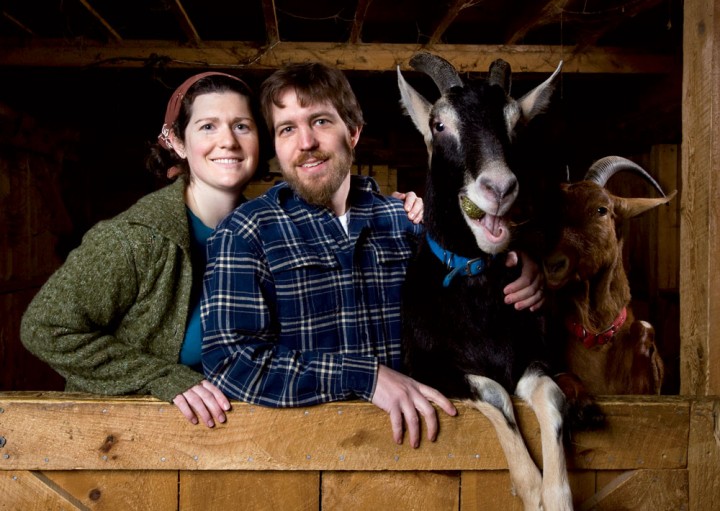
Photo Credit : Jose Azel
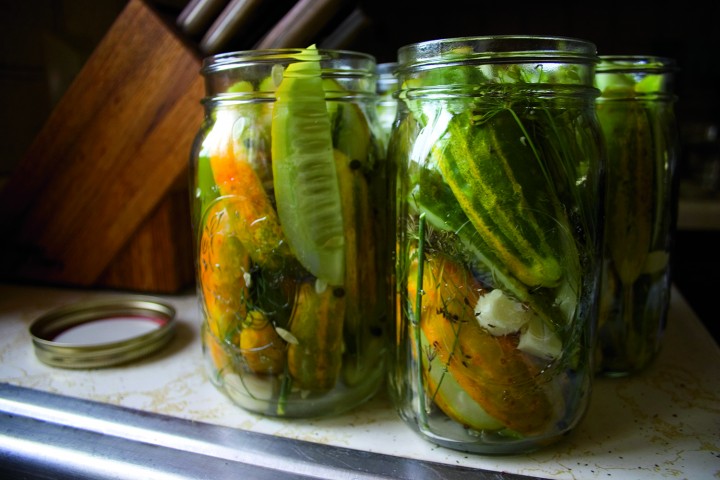
Photo Credit : Karl Schatz
Ten Apple Farm | Gray, Maine
Twelve years ago Margaret Hathaway and her husband, Karl Schatz, left New York City and headed for the hills, quite literally. “We knew we wanted to get back to the land,” says Hathaway, who had been the manager of the famous Magnolia Bakery. She and Schatz interviewed people all over the country to determine how to best start homesteading and moved in 2005 to a plot in southern Maine. They garden, make cheese, offer poultry-slaughter workshops, and teach classes on chicken raising, bread baking, and more. The farm’s adorable herd of goats enjoy taking hikes with visitors. livingwithgoats.com
Cluck! | Providence, Rhode Island
This one-stop shop for urban growers and gardeners provides tools, feed, supplies, and classes on small-scale food production, backyard animal husbandry, food preservation, and healthy living. Located in a former gas station near Federal Hill, this cute shop even has beehives and a handsome flock of chickens clucking around the demonstration gardens.cluckri.com
The Farm School | Athol, Massachusetts
Crop planning, greenhouse agriculture, root-cellar preparation, and small fruit-orchard management are a few of the skills taught here. The school offers a year-long program beginning in October, preparing students for serious farming. “In order for people to dive in and walk away with confidence and competence, everybody moves through the program and does everything,” says director Patrick Connors. Students run a vegetable CSA, work with draft horses, study animal husbandry (including cattle and poultry management), and learn to weld and build. Some go on to start their own farms, and others work as farm managers.farmschool.org
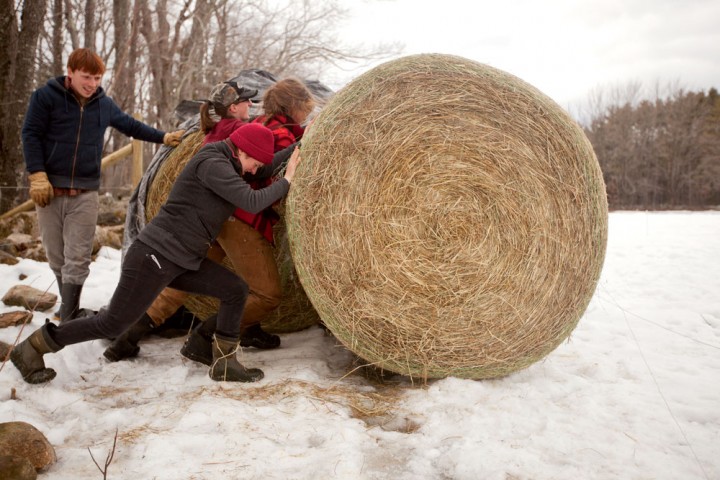
Photo Credit : Erik Jacobs
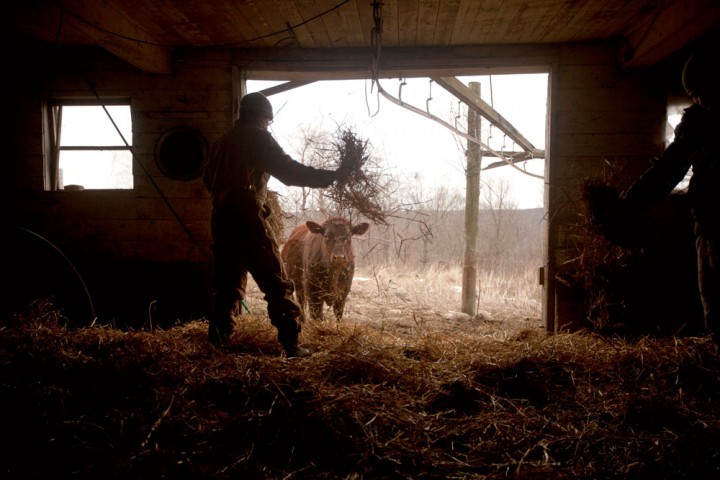
Photo Credit : Erik Jacobs
University of Vermont’s Farmer Training Program | Burlington, Vermont
This six-month, full-time experience offers classes in seeds, soil, field care, harvesting, and equipment. Students rotate through area farms, while also running their own fruit and vege-table operation. The program runs May through October and typically includes 20 to 25 new students each year. learn.uvm.edu/program/farmertraining
Heartwood School | Washington, Massachusetts
“Timber framing is the traditional way of building with timber on your own property,” says program director Will Beemer. And what could be more DIY than building your own home? Heartwood offers multiday training in timber grading, framing, finish carpentry, even tiny-house construction. Beemer says that many of his students are looking to build their own gardening sheds or guesthouses, while others are traditional carpenters who want to learn timber framing.heartwoodschool.com
Yestermorrow Design/Build School | Waitsfield, Vermont
With more than 100 hands-on courses per year, Yestermorrow is a longstanding destination for beginners and skilled professionals seeking to launch hobbies or further careers. From two-day introductory woodshop classes to multiweek certificate programs, this school can get you started on furniture making, energy efficiency, timber framing, fine finish plastering, net-zero design, small-house design, even skin-on-frame canoe construction in the Celtic and Inuit traditions. yestermorrow.org
Vermont Tiny Houses | Bakersfield, Vermont
Peter King has been building and living in tiny houses for years. He envisions whole communities of tiny houses, inhabited by people who are working the land, maybe as farmers or maybe as laborers, living on little money and using few natural resources. In the meantime, he’s teaching others to build their own small houses. Intensive, weekend-long workshops, scheduled throughout the year, accommodate four to twelve people each. vermonttinyhouses.com
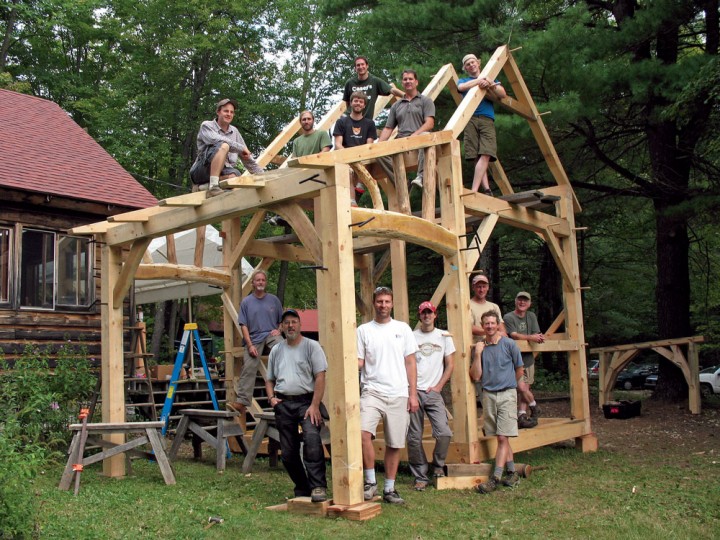
the craft of timber framing alive using traditional tools and techniques.
Photo Credit : Will Beemer/The Heartwood School
The Shelter Institute | Woolwich, Maine
For 42 years, builders and beginners have flocked to Woolwich to learn from the masters. The most popular workshops—an intensive design/build course and a post-and-beam primer—require a multiday commitment. Design/Build covers everything from site planning and foundation basics to insulation selection and alternative energy sources, plus wiring, plumbing, roofing, and more; Purely Post & Beam takes you from designing to cutting to raising a timber frame. You can also sign up for one-time workshops of just a few hours apiece that will teach you useful DIY skills and crafts, such as how to pour your own concrete countertops; sharpen tools; carve wooden spoons, reliefs, or canoe or kayak paddles; wire your home; and make wooden boxes using hand-cut dovetail joinery. shelterinstitute.com
Hancock Shaker Village | Pittsfield, Massachusetts
Once a year, Hancock Shaker Village offers a five-day intensive class on timber framing that resembles nothing less than an old-fashioned barn raising. A small, hands-on group—usually no more than 16 students, plus two instructors—builds a timber-frame structure and has it in place by the time the workshop ends. The class is always scheduled to coincide with the village’s annual Country Fair in September, making it an especially festive place to spend several days. hancockshakervillage.org


